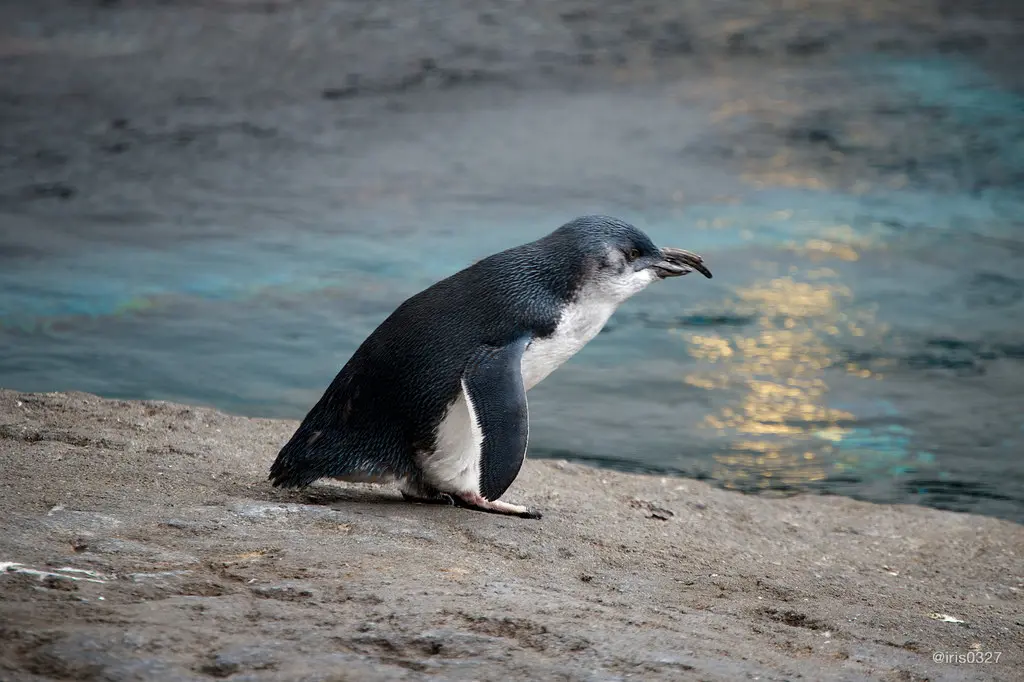Mōtītī Blue and the oil spill. A story from the Rena disaster by Debbie McCauley

IRIS Liu. Some rights reserved
This book is a compelling read about New Zealand's recent ecological, maritime disaster. Although a serious topic the book itself is so appealingly presented my immediate response was one of delight. My positive reaction began with the cover. The title and the image of a little penguin on the front and back cover, have been given a sheen finish contrasting with the patterned matt surface of the background, the ocean. When opened the end papers feature 365 small images of penguin, representing the little blue penguins that were rescued and returned safely to the wild after the disaster. In fact, everything about the format of the book encourages one to read on. A Waterline bookmark is tucked inside the front cover. At the back an A1 sized poster is secured in a neat pocket, while the story itself very clearly explains the details of the Rena disaster and all the care involved in removing the oil and debris that polluted the Tauranga coastline. The particular focus of the story is, of course, devoted to describing the process of rescuing maritime wild life, especially the blue penguin named Mōtītī Blue.
The narrative (in English and Te Reo) is designed for younger readers and is accompanied by bold photographs taken around the disaster site. These include images of the ship on the reef, the animals and the wildlife rescue teams. They match the story perfectly and describe the timeline from the morning when the Rena became stuck on the Astrolabe Reef until the moment when the last Mōtītī blue penguin is released into the ocean.
However, the book cleverly works for more than one age group. Every page also includes: fact boxes, maps and research details that will be of interest to older students and adults alike. The final seven pages of the book are devoted to an older audience giving a detailed summary of the people involved, the rescue process timeline and pages with in-depth acknowledgements that students will also learn from.
In summary this an excellent example of how a book can work for students to help them develop their sense of curiosity and research- and also to take their research further using the online links mentioned in the book. Debbie McCauley and her team should be congratulated on their wonderful achievement.
Image IRIS Liu by International Antarctic Centre on Flickr